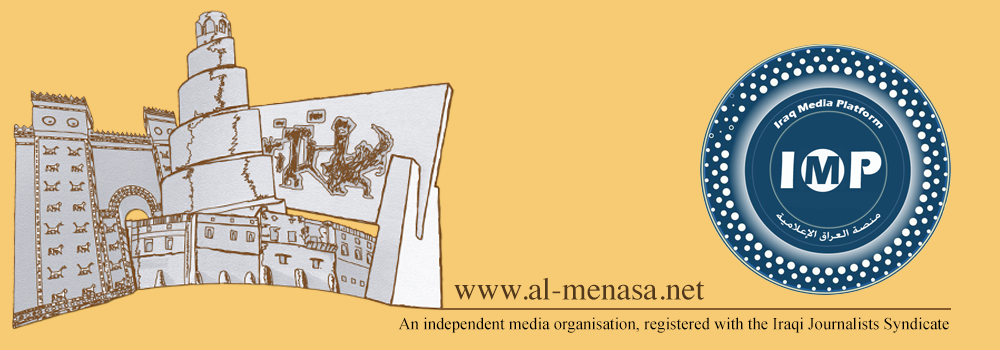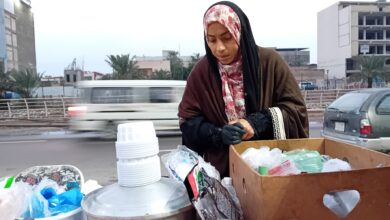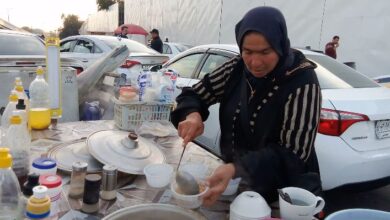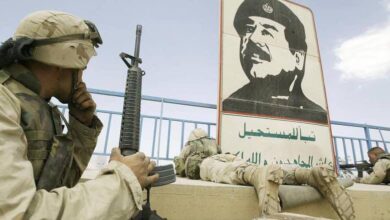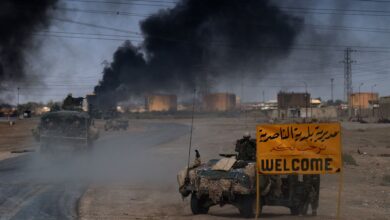JUSTICE DONE? Yazidi survivors discuss their new compensation law

On August 10, 2017, a unit of the Iraqi army raided a house in the northern city of Mosul. It had once been a headquarters for the extremist group known as the Islamic State. The extremists had controlled controlling since mid-2014 but were now being pushed out by the Iraqi army.
By Maisar al-Adani
In the house, soldiers found several women who had been kidnapped by the extremist Islamic State group, all of them members of Iraq’s ethno-religious Yazidi minority.
One of the women was Diana Ameen, now 22 years old. After enduring three years of torture and abuse at the hands of the extremists – the extremists took many of the younger Yazidi women as sex slaves – Ameen has closely followed the recent changes that apply to her cohort.
That is the Yazidi Female Survivors Law, which was passed by the Iraqi parliament and president on March 8, 2021.
Diana describes the law as a small part of the compensation that’s required by the Yazidi survivors. “During our captivity, we were subjected to heinous crimes and we lost years of our lives,” she says. “Like many others, I am still experiencing the trauma of what I went though. Nothing can make up for what we lost.”
Diana now works for a survivors’ network in a displaced persons’ camp in Zakho, northern Iraq. She wants to see the new law enacted so that it is more than just a piece of paper, she says.
The Yazidi Female Survivors Law recognizes the crimes committed against the women as crimes against humanity.
The law provides assistance to victims of the Islamic State group, primarily Yazidi female survivors who were kidnapped and later freed, but also members of other minorities who suffered the same fate, including Turkmen, Christian and Shabak Iraqis.
Under the new law, the Iraq government will provide a monthly stipend, residential land or free housing and psychological support to victims. It also calls for the establishment of a special government department to take care of the affairs of the female survivors.
The law also says that the search for survivors of all of the affected minorities must continue, in cooperation with the families of the missing.
Even though several years have passed since the areas of Sinjar and Mosul, where most of the Yazidis were held, have been liberated it is thought that around 3,000 men, women and children are still unaccounted for.
It remains unclear how many members of other minorities, such as Turkmen or Christians, are still missing too.
One of the problems is the social stigma attached to those who were kidnapped and sexually abused. For example, some conservative families won’t accept female returnees. They unfairly say the women bring shame on their families.
In fact, Raed Bahjat Mahmoud, a local expert in religious minorities’ affairs, says that tribal traditions mean that some minorities won’t even search for the women who were kidnapped by the IS group. They may even refuse to talk about them, saying that they are most likely dead.
The brother of one kidnapped woman told Mahmoud that if the kidnapped woman returned, it would cause more trouble for the family than her disappearance. “So they prefer to think of her as just being dead,” he said.
Mahmoud believes it is quite possible that the number of people kidnapped from out of the Turkmen or Shabak communities may actually be much higher than is publicly known.
Manal Luqman is now 22 years old but she was just 15 when she was abducted by members of the IS group. “I used to ask God to grant me death,” says the woman who was raped and beaten before escaping the extremists.
“Despite our suffering and the difficult humanitarian conditions in the camps after our liberation, we did not stand idle and we continued our movement,” says Manal. She participated in various workshops and seminars and helped to draft changes to the Yazidi Female Survivors Law.
There are still some parts of the new legislation that Luqman considers “unfair”. However on the whole she is proud of the work that she and other survivors have done and believes the law is a victory for the Yazidi survivors and their families.
It gives the survivors strength and motivates them to move on with their lives, she concludes.
This report was completed with support of NIRIIJ, the Network of Iraqi Reporters for Investigative Journalism.
